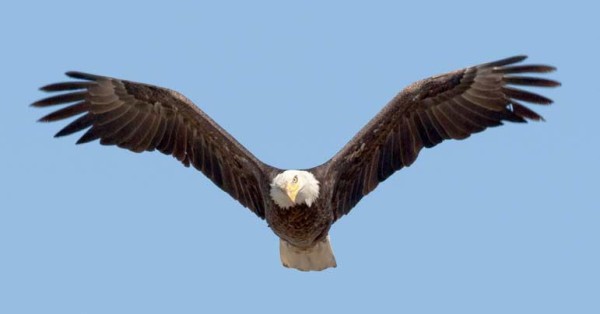
- Details
- By Levi Rickert
ABERDEEN, S.D. — David Alan Meyer, 58, of Flasher, N.D. pleaded guilty to contributing to the 2016 deaths of six bald eagles on his buffalo ranch, which is located on the Standing Rock Indian Reservation.
Meyer was charged on Jan. 16. He made his plea to U.S. Magistrate Judge William D. Gerdes.
According the a press release issued by the U.S. Attorney Ron Parsons, in March and April 2016, a joint U.S. Fish and Wildlife Service and Environmental Protection Agency investigation revealed that Meyer, owner of Meyer Buffalo Ranch on the Standing Rock Sioux Indian Reservation, had supervised the misapplication of 39,000 pounds of Rozol prairie dog bait, a restricted use pesticide, on more than 5,400 acres of his property.
During the course of the investigation, over a dozen workers were interviewed and admitted they were given orders by Meyer to put the poison in holes on the ranch. Due to the large volume of poison needed to be distributed on the large ranch, the workers wanted to hurry the process and put down high concentrated amounts in a limited amount of holes. The sloppy work was not in accordance with application requirements of the Rozol label.
Because of the misapplication, the EPA emergency response team was dispatched to oversee the cleanup of the ranch land by Meyer. During the course of the investigation, six bald eagles were recovered and confirmed to have died as a result of the poison.
The maximum penalty for the crime Meyer pleaded guilty to is one year in federal prison, a $100,000 fine, a one-year supervised release and $100 payment to the Federal Crime Victims Fund, and restitution.
In a plea deal with the prosecutor has agreed to recommend probation for Meyer for his agreement to pay $58,800 in restitution and a $50,000 fine.
Meyer was released on bond pending sentencing, scheduled for April 2, 2020.
More Stories Like This
Native News Weekly (August 25, 2024): D.C. BriefsNavajo Nation Mourns the Passing of Former Vice President Rex Lee Jim
Deb Haaland Earns Endorsement From Communications Workers of America Local 7076
University Soccer Standout Leads by Example
Two Native Americans Named to Democratic Congressional Campaign Committee's“Red to Blue” Program
Help us defend tribal sovereignty.
At Native News Online, our mission is rooted in telling the stories that strengthen sovereignty and uplift Indigenous voices — not just at year’s end, but every single day.
Because of your generosity last year, we were able to keep our reporters on the ground in tribal communities, at national gatherings and in the halls of Congress — covering the issues that matter most to Indian Country: sovereignty, culture, education, health and economic opportunity.
That support sustained us through a tough year in 2025. Now, as we look to the year ahead, we need your help right now to ensure warrior journalism remains strong — reporting that defends tribal sovereignty, amplifies Native truth, and holds power accountable.
 The stakes couldn't be higher. Your support keeps Native voices heard, Native stories told and Native sovereignty defended.
The stakes couldn't be higher. Your support keeps Native voices heard, Native stories told and Native sovereignty defended.
Stand with Warrior Journalism today.
Levi Rickert (Potawatomi), Editor & Publisher

